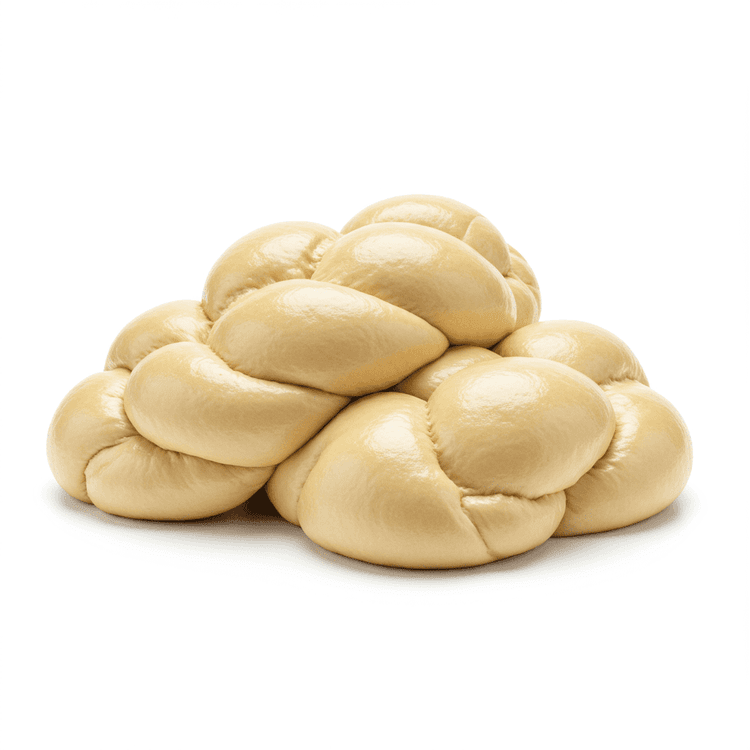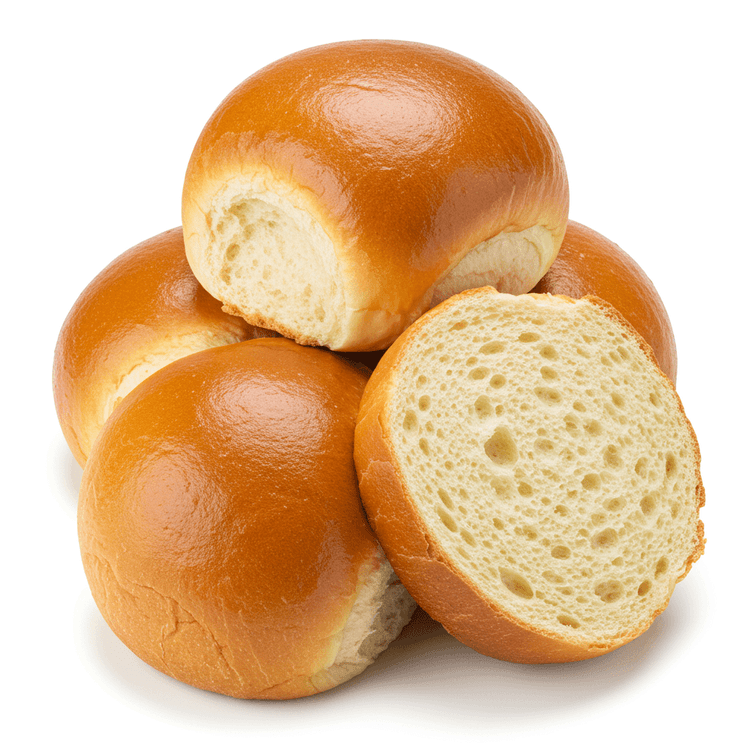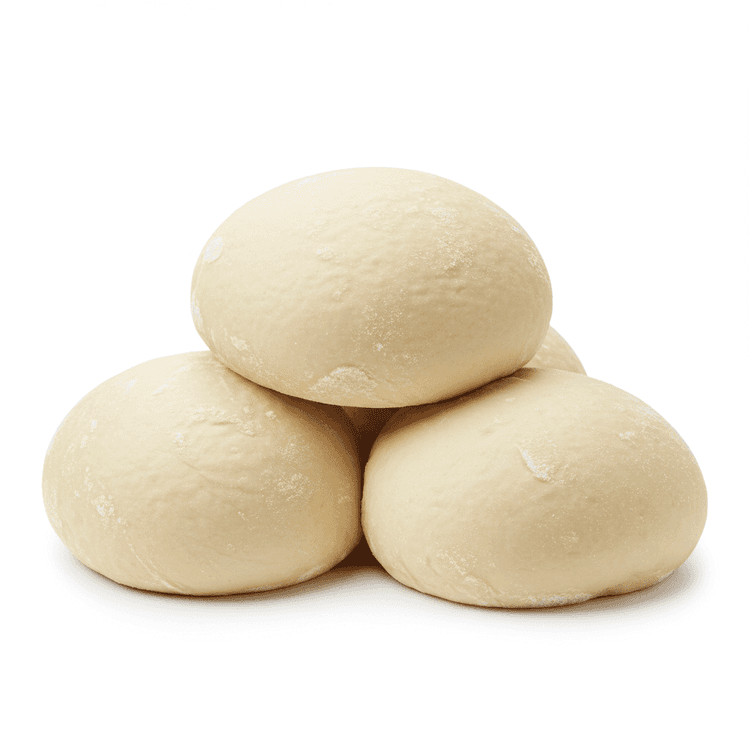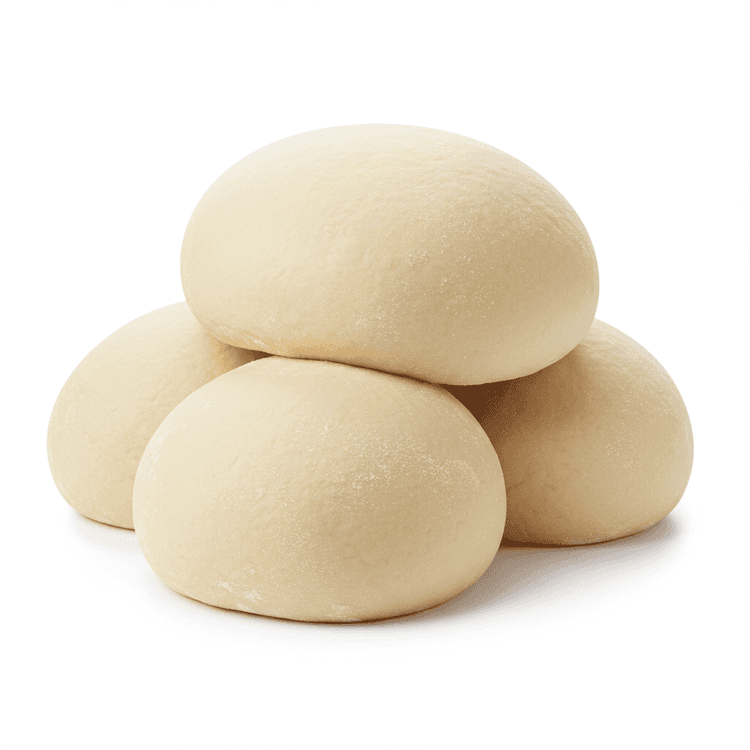
Challah Dough
Challah dough is a rich, slightly sweet, and wonderfully pliable bread dough, prized for its beautiful braided loaves. Its flavor is subtly sweet and eggy, with a soft, slightly chewy texture when baked. The dough itself is smooth and elastic, a golden yellow hue hinting at the eggs and enriched flour used to create it. Perfect for making traditional braided challah bread, rolls, or even sweet buns. Making challah dough from scratch can be time-consuming, but the rewarding aroma and taste of freshly baked challah are well worth the effort. Prepared challah dough is also often available at bakeries or specialty food stores, offering a convenient shortcut for home baking.
Common Uses
- Used to create traditional braided challah bread for Shabbat and Jewish holidays, offering a slightly sweet and enriched flavor that complements savory and sweet dishes alike.
- Can be formed into delicious challah rolls, providing a soft and subtly sweet alternative to regular dinner rolls, perfect alongside soups, salads, or as sandwich buns.
- Used as the base for sweet buns or babka, incorporating fillings like chocolate, cinnamon, or fruit preserves for a delightful dessert or treat.
- Leftover challah dough can be transformed into French toast, adding a richer, sweeter, and more flavorful dimension to this breakfast classic.
- Bakers often use challah dough to make savory pull-apart breads by adding herbs, cheese, or garlic to the dough before baking for flavorful appetizers.
- Bakers use challah dough to bake a buttery soft loaf, great served warm with a bit of butter or jam
Nutrition (per serving)
Nutrition (per serving)
Calories
274.0kcal (13.7%)
Protein
9.0g (18%)
Carbs
50.0g (18.18%)
Sugars
8.0g (16%)
Healthy Fat
2.8g
Unhealthy Fat
0.8g
% Daily Value based on a 2000 calorie diet
Nutrition (per serving)
Calories
274.0kcal (13.7%)
Protein
9.0g (18%)
Carbs
50.0g (18.18%)
Sugars
8.0g (16%)
Healthy Fat
2.8g
Unhealthy Fat
0.8g
% Daily Value based on a 2000 calorie diet
Health Benefits
- Provides carbohydrates for energy to fuel daily activities.
- Source of protein, contributing to muscle repair and maintenance.
- Contains B vitamins, essential for nerve function and energy metabolism.
- Can be enriched with iron, which is vital for preventing anemia and supporting oxygen transport.
- Offers a source of dietary fiber, promoting digestive health and regularity.
Substitutes
Chefadora AI is here.
Experience smarter, stress-free cooking.
Storage Tips
Unbaked challah dough can be stored in the refrigerator for up to 24-48 hours. Cover the dough tightly with plastic wrap that has been lightly oiled to prevent sticking. Alternatively, freeze unbaked challah dough for longer storage. Wrap it tightly in plastic wrap and then in a layer of aluminum foil, or place it in a freezer bag, removing as much air as possible. Frozen dough can be stored for up to 2-3 months. Thaw overnight in the refrigerator before baking according to your recipe.
Marnirni-apinthi Building, Lot Fourteen,
North Terrace, Adelaide, South Australia, 5000
Australia



